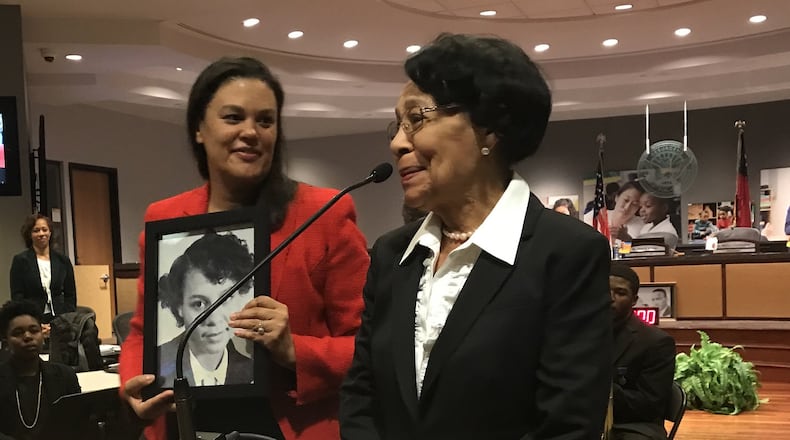Atlanta Public Schools honored Mary Frances Early, a history-making former student and educator and the University of Georgia's first African American graduate.
Next month, the university's College of Education will be named in Early's honor. But on Monday, the school district where she graduated from high school and later taught music took its turn paying homage to her.
Before Monday’s board meeting, APS officials paused to recognize Early.
“This is the most incredible way to start a new decade,” said APS Superintendent Meria Carstarphen. “We have come a long way, and you have made that possible.”
Early, 83, was the valedictorian of the former Henry McNeal Turner High School in Atlanta. She earned a bachelor's degree from Clark College, now Clark Atlanta University, and later enrolled at UGA. In 1962 she became the university's first black graduate when she completed her master's degree in music education.
She also taught music at APS and worked as a music director for the entire district.
“There’s nothing like being honored by your own,” Early said on Monday. “I call the Atlanta Public Schools my school system … because I worked in it and went to school in it for almost five decades.”
She said some consider her an “unlikely candidate” to be a civil rights activist because she was so studious and quiet. But she said integrating UGA was something she felt she had to do because she could not “stand on the sidelines and wait for somebody else.”
“It changed the University of Georgia forever, and I knew it would,” she said. “When you go on campus today and look at the diversity one can be so happy because it reflects all of us, not just some of us.”
Last month, the Atlanta City Council also recognized Early.
About the Author
Keep Reading
The Latest
Featured





